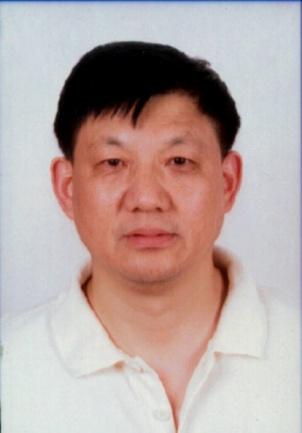08:30 | Registration |
|
Epigenetics |
| |
09:00 |  | Keynote Presentation DNA Methylation Perspectives of Cancer Biology and Clinical Management
Jingde Zhu, Principle Investigator, Shanghai Jiaotong University, China
Cancer is the disease of misproliferating cells, with a wide range of genetic and epigenetic abnormalities. Among the epigenetic entities, DNA methylation is the best characterized and contributes to the transmission of the long-lasting transcription memory through cell division and therefore the phenotype. Aberrant DNA methylation changes the genomic transcription, representing promising molecular targets for better cancer diagnostics and therapeutics. Using an integrative approach (1. Discovery of the cancer specific altered genes via the MBD-seq based methylomic and RNA-seq based expression profiling, 2. Confirmation of the top candidates by alternative measure in clinical setting and 3. Development of the tailored assay for clinical use), we have developed a novel diagnostic (a multiplex qPCR kit/ DNA methylation profiling of 5 targets in urine sediment) for early detection, quality control of surgery and monitoring the recurrence of bladder cancer. The effort to develop the robust DNA methylation analysis assay in plasma will also be presented.
|
|
10:00 | Coffee & Networking in Exhibition Hall |
10:45 | Epigenetic Deregulation in Cancer
Clare Stirzaker, Group Leader, Garvan Institute of Medical Research, Australia
Epigenetic processes are deregulated in cancer. We have shown that epigenetic deregulation occurs not only at single genes but can also encompass large chromosomal domains, leading to long range epigenetic remodeling in cancer and atypical expression of genes. |
11:30 | Therapeutic Targeting of Epigenetic Machinery in Cancer: Novel Insights into Mechanism and Therapeutic Targets
WEE Zhen Ning Adrian, Postdoctoral Fellow, Genome Institute of Singapore, Singapore
Recent efforts directed towards targeting EZH2 in cancer will be discussed in the context of both PRC2-dependent and-independent activities of EZH2 in oncogenesis. |
12:15 | Lunch & Networking in Exhibition Hall |
13:30 | Poster Viewing Session |
14:15 | Transcription Factors and Chromatin Interactions in Cancer Cells
Melissa Fullwood, Assistant Professor, Yale-NUS College, Singapore
Many distal transcription factor binding sites have been observed. Chromatin interactions can connect distal transcription factor binding sites with target gene promoters. In this talk, I will introduce Chromatin Interaction Analysis with Paired-End Tag sequencing (ChIA-PET), a next-generation sequencing-based method for identifying chromatin interactions between transcription factor binding sites on a genome-wide scale which was part of the ENCODE consortium. Our results suggest that chromatin interactions may be a major mechanism by which transcription regulation occurs in human cells. |
|
NGS & Personalized Medicine |
| |
15:00 | Application of NGS in Personalized Oncology – From Discovery to Clinical Application
Ong Choon Kiat, Senior Scientist, National Cancer Centre Singapore, Singapore
With landmark mutation studies for each cancer type completed and the reduced cost in high throughput sequencing, the pace toward personalized oncology is gaining momentum. I will describe the application of NGS in molecular diagnostics, its challenges and two successful cases on lung cancer. |
15:45 | Coffee & Networking in Exhibition Hall |
16:30 | Whole Genome Sequencing Analysis of Liver Cancer and Personalized Cancer Medicine
Hidewaki Nakagawa, Laboratory Head, RIKEN Center for Integrated Medical Sciences, Japan
Whole genome sequencing analysis for 100~ liver cancers reveals whole genome landscape of various phenotypes of liver cancers with multiple etiological backgrounds (virus and non-virus) for point mutations, CNVs, SVs, and virus integrations. Comparison among genomic pictures of heterogeneous liver cancers can clarify the underlying liver carcinogenesis and facilitate genomic biomarkers discovery and personalized cancer medicine. |
17:15 | Implementing Next Generation Sequencing Diagnostics in Asia
Richie Soong, Senior Principle Investigator, National University of Singapore, Singapore
Next generation sequencing (NGS) promises much to clinical diagnostics with its digital output, speed, and depth and breadth of coverage. However, to realize this promise, numerous issues need to be addressed. Technical issues include the selection of targets and assay formats, generation of validation data, handling of low level variants and bioinformatics. Cultural issues include the development of expertise, change management and centralization models. Financial issues include finding the right balance between cost, demand, and throughput. Regulatory issues include quality assurance, legal and ethics concerns. Moreover, the subtleties of Asian healthcare systems mean a significant degree of self-configuration needs to be undertaken. Our efforts to address these issues will be covered in the context of a pilot study on introducing screening for inherited cancer predisposition. |
18:00 | End of Day One |

